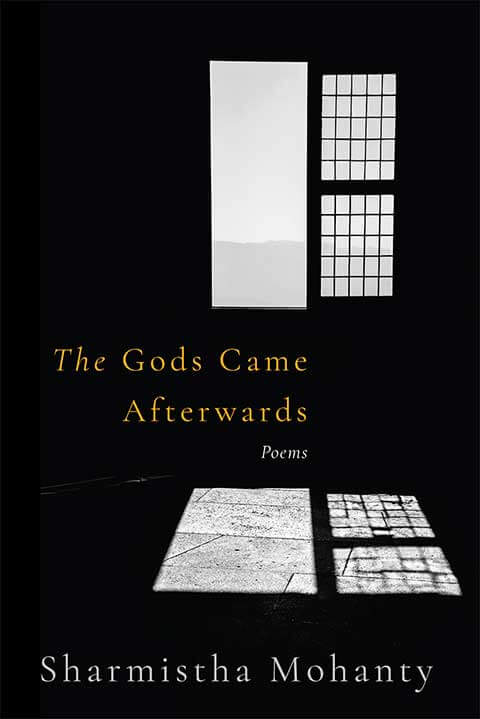

The Gods Came Afterwards
In The Gods Came Afterwards, Sharmistha Mohanty has created a stunning sequence of songs of quest and aspiration, moving through multiple states of mind and “remains of melted meteorites”. There is a charged authority here, a forceful lyrical evocation of contemplative power and urgency. We are back in a primal world that has been lost or abused and yet these songs are present, here, now, in our “injured evening”, our “scarred forests” with the terror of the owl screeching above us losing a wing, or the falling bricks of a metaphorical falcon. I think of our falling and failing cities, our need for wisdom, guidance, ritual, our need to heal and “calm the anxiety in our hands” which conjures our fraught cell device addiction. Inspired in part by the Rig Veda, the poet reanimates the “voice” of magical sacred text with agency, with sparks of spare simplicity, with skill and devotion. The call for relief in these poems is unforgettable. Have the gods come after? Have they been cast aside? Are we still waiting? Or are we back before them in our existential oracular relationship with Nature? This book is a haunting meditation. We are both “very far very far “ and “very near very near” with “astral distance wedged in the spinal cord.”
Anne Waldman
These poems are like hymns thrown up from the deepest depths of the self. They are upward rising, a solitary being’s verses of praise. They utter the purest parts of the soul.
Joy Goswami
A voice rises from the ground on which she has knelt to write, prayers that go to gods that have not yet arrived. There is in these rhythmic and rooted poems ⎯like the banyan of India⎯ an acceptance of the precariousness of our condition in the face of the possibility of the end of the world, and an unusual way of speaking to the planet Earth. Written by someone who, like Yuri Gargarin, also reached outer space, Mohanty seems to have been resurrected and her mysteriously returned life ends up being the backbone of what I would call a song that reconciles you with the deeply unusual ⎯ "what is uncertain at the beginning / is uncertain at the end,” "what cannot be repaired / was not broken "⎯ that left me suspended, participating in a faith in the landscape with which I converse.
Raúl Zurita